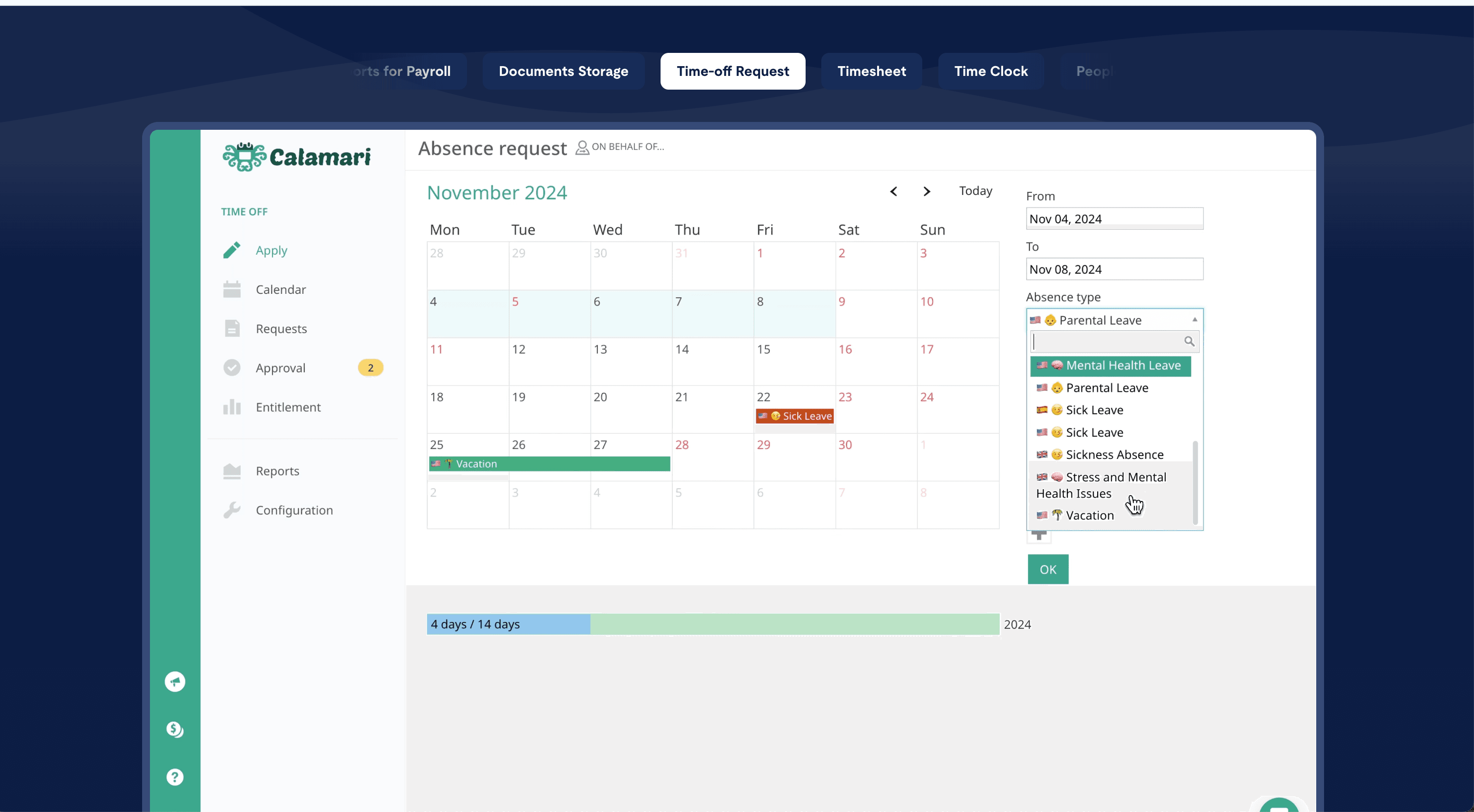Last updated on October 20, 2025
You've probably hit that awkward stage where tracking PTO in spreadsheets feels like herding cats, but you're not quite ready to drop serious cash on a full HR platform that takes weeks to set up.
So let me walk you through what actually works for teams like yours. Watch the video below for a quick breakdown of each tool and which ones to avoid.
1. Vacation Tracker Works Best for Most Small Teams
Look, I'm not going to pretend I'm unbiased here. Vacation Tracker is my top pick because it solves the exact problem you're facing without adding unnecessary complexity.
![]()
Here's what makes it work:
- Quick setup that won't eat your entire afternoon
- Automatic accrual handling (the main reason you're ditching spreadsheets, right?)
- Direct integrations with Slack, Microsoft Teams, and Google Workspace
- Transparent pricing without the need for sales calls (but you can book a demo if you want to)
- Clean overview of who's out and when
The workflow is simple: employees request time off where they already work (Slack/Teams/Google), managers approve with one click, and the system updates balances automatically.
Now, if you literally just need a shared calendar and nothing else, stick with Google Calendar. But you won't get the time savings that make a dedicated tool worth it.
2. ConnecTeam Makes Sense for Very Small Teams Under 10 People
ConnecTeam has a free plan for up to 10 users, which is hard to beat if you're bootstrapping.
![]()
But here's the catch: it only makes sense if you need their additional features like time tracking, scheduling, or task management. The interface looks nice enough, and if you're already thinking about those extras, give it a shot.
For pure leave tracking though? You're paying (in complexity) for features you don't need.
3. BambooHR Only Works if You're Growing Fast
BambooHR is a full HR platform, not just a leave tracker.
![]()
It makes sense when:
- You've hired your first HR manager
- You're building an HR team
- You need employee records, performance reviews, and payroll in one place
The problem with this tool is that the pricing isn't transparent. You'll go through a long sales cycle, and you'll pay significantly more than any other tool I'm mentioning here.
If you're at 20 people with no plans to hit 100 anytime soon, this is overkill.
4. Buddy Punch Combines Time Tracking with PTO Management
Buddy Punch works well for field teams, construction sites, or any business where tracking hours matters as much as tracking time off.
![]()
They've got solid time tracking features with GPS monitoring, which makes sense if you need to prevent time theft. But the leave management feels like an automation rather than the main event.
If your team doesn't clock in and out, skip this one.
5. Timetastic Fits European Companies Better
Timetastic looks clean and works well, but it's built with UK and European labor laws in mind.
![]()
If you're a US-based company, some features won't make sense. But if you're in the UK or Europe? This tool nails the local compliance stuff and offers nice calendar views plus mobile access.
Worth checking out if you're on that side of the Atlantic.
6. Calamari Targets Distributed Teams with European Focus
Calamari is another European-focused tool that handles distributed teams well.

The design feels dated (not gonna sugarcoat it), and like Timetastic, some features won't click for US customers. But if you need time sheets, time tracking, or a central HR database alongside leave management, it might be worth your time.
Just be prepared for an interface that looks like it's from 2015.
Tools You Should Skip for Small Teams
Some tools market heavily to small teams but don't actually fit the use case. Here's what to avoid:
Deel: Way too expensive and feature-heavy. Built for global teams needing compliance across 100+ countries. Unless you're hiring in 15 different countries, this is massive overkill.
Factorial: Their pricing page says "$8 per user/month" but requires automations that jack up the cost fast. You'll end up requesting a custom quote, and the final number won't match what you expected.
Homebase: Focused on payroll for restaurants and retail. Unless you're running a physical store or restaurant, skip it.
Flamingo: Only works in Slack. If you ever want to switch communication tools (or use multiple platforms), you're stuck. Most other tools integrate with Slack anyway, so why limit yourself?
My Biased But Honest Take
You need Vacation Tracker if you're leaving spreadsheets behind and want something that just works. It handles your policies and business logic without forcing you into a bloated HR platform.
For smaller teams, keep the other options in mind based on your specific needs. But keep it simple. Focus on what you actually need day-to-day, not what sounds impressive in a feature list.
The best tool is the one your team will actually use without complaining.

Annika Helendi
Annika is a fan of marketing and AI.



